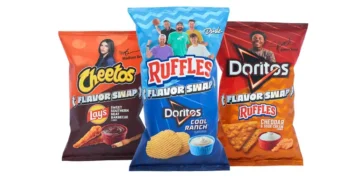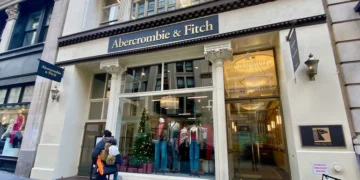Opinions expressed by Entrepreneur contributors are their own.
If you ask a lot of business leaders, they’ll tell you that there’s nothing more important than loyalty. A loyal customer returns to you again and again — because you’re delivering on a brand promise and giving people what they want.
Of course, this virtuous circle needs a little grease sometimes — which is why the loyalty program (providing a “reward” for loyal patronage) was invented. It’s a transactional concept that goes back to Ancient Egypt, where pharaohs rewarded conscripted workers and enslaved people with “tokens” for their work and temple time. In the age of Big Data, consumer rewards (free “stuff” or access) often come in exchange for personal data.
But consumers are increasingly unenthusiastic about this tradeoff. They’re rejecting the idea that brand loyalty means giving up control of their data. Digital native Gen Zs, in particular, demand transparency and honesty from brands above all else, even if they also expect personalization.
Just look at the splashy ads that Apple has been airing on TV — showing a young woman walking into the middle of an auction where her personal data (email entrails, drugstore purchases) is about to be sold to the highest bidder. She pulls out her iPhone and, with the click of a button, she flips the privacy setting to (poof!) make the auction disappear.
In 2022, control over data — and transparency over how it’s handled — is a concept that sells. And more than ever, customers want a voice in the brand relationship — and to know that their voice is being heard.
Related: How to Create Authentic Relationships and Build Customer Trust
Move beyond loyalty and build devotees
The Apple ad is rooted in a reality that the brand has recognized for years: The most important thing in the customer relationship is not loyalty but enthusiasm. If customers really love you — and not just tolerate you for the sake of a few points, credits or tokens — they will pay that extra $200 or $300, especially if they feel like they (and their data) are being treated with respect.
These consumers as described in a study by Forrester as “devotees”:
- Spend more money with their favored brands.
- Keep their business with these brands.
- Forgive them when they mess up.
- Pay a premium price for their products/services.
- Go out of their way to work with them.
This is different from a “loyal” customer in significant ways, described as someone who is staying with a brand for the benefits — until something better comes along. And in this era of customers burned by rising prices and service shortcomings — there’s less willingness to “pay a premium” for a product or to “forgive” brands when they screw up.
We’re starting to see this shakeout happen in the streaming world. According to a recent Wall Street Journal report, 19% of subscribers of premium services (including Netflix, Hulu, AppleTV+, HBO Max and Disney+) “canceled three or more subscriptions in the two years up to June (2022)… up from 6% in the two-year stretch ended in June 2020.” For all the data that streamers are collecting — and the many algorithm-informed shows they’re producing — they haven’t been successful at building a devoted customer base. According to the aforementioned study, 100% of “devotee” customers are willing to pay a premium price for the brands they love — but only 11% of non-devotee customers are willing to do the same.
Related: Creative Ways to Delight Your Customers and Make Them Loyal to Your Brand
Wrap your arms around your best customers
To achieve this level of devotion, you need to move beyond traditional concepts of loyalty and stop treating customers as mere data points. As Ana Andjelic wrote in Harvard Business Review in 2021, “Loyalty programs — that effectively bribe people into buying more of your products — are lazy. In the modern aspiration economy, people develop true brand affinity only when it gives them a sense of community.”
So how do you give consumers that sense of community? For luxury products, Andjelic explains, it might take the form of exclusive experiences such as an invitation to the Château de Saran — an estate that’s part of the Moët & Chandon powerhouse brand where you can’t pay to stay but have to be invited.
You can also build that sense of community in the virtual world — for far less money — by convening a select panel of brand enthusiasts, who are consulted on everything from new offerings to tailored brand services.
By leveraging mobile-based research platforms, for instance, brands can regularly “check in” with customers and survey their needs. They can make their best customers feel part of their vital marketing processes and glean insights that help craft new brand messages or deliver new products or services.
Whether it’s a brand ambassador program, an online insight community or an exclusive château in the French countryside, people want to be active participants with their favorite brands. They will eagerly reach out to provide feedback, both good and bad. So find ongoing ways to engage with them — and show them that their voice is being heard and is driving action at the company.
Brands still need data to serve customers effectively. But in this era of increasing government regulation of data usage — and growing consumer concern about privacy — brands need to be transparent about what they’re collecting and give consumers good reasons to let them into their private lives. The era of “creeping” consumers — and calling that loyalty — is over.
Read the full article here














